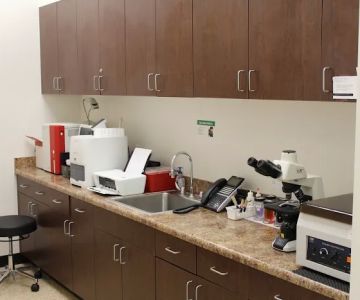Finding the Right Place to Study Veterinary Medicine: My Journey to Becoming a Veterinarian
- Understanding the Veterinary Career Path
- Where to Study to Be a Veterinarian in the U.S.
- International Options for Veterinary Studies
- Factors to Consider When Choosing a Veterinary School
- Personal Experience and Recommendation
When I first told my family I wanted to become a veterinarian, their immediate response was, “That’s a noble profession—but do you know where to study to be a veterinarian?” At the time, I didn’t. But that question launched me into a deep exploration of veterinary education, licensing, and career planning. Becoming a veterinarian is not just about loving animals. It’s a complex, rewarding journey that starts with selecting the right educational path.
The veterinary profession requires a deep understanding of animal biology, pathology, pharmacology, and surgical skills. A Doctor of Veterinary Medicine (DVM) degree is essential to practice, and choosing the right institution to pursue this degree can make a huge difference in both academic performance and career trajectory. If you're wondering where to study to be a veterinarian, this article is for you.
Where to Study to Be a Veterinarian in the U.S.
The United States is home to some of the world’s top veterinary schools. The American Veterinary Medical Association (AVMA) accredits veterinary colleges that meet high standards in education and research. When I was exploring options, I quickly discovered that competition is fierce. Only about 30 AVMA-accredited veterinary schools exist across the country, and the acceptance rate is often lower than that of medical school.
Among the best schools to study veterinary medicine in the U.S. are:
- Cornell University College of Veterinary Medicine: Located in New York, Cornell consistently ranks at the top, offering cutting-edge research and clinical exposure.
- University of California, Davis (UC Davis) School of Veterinary Medicine: Renowned for its large animal medicine and public health focus.
- Colorado State University College of Veterinary Medicine: Known for its advanced technology and veterinary oncology program.
- North Carolina State University College of Veterinary Medicine: Offers excellent facilities and collaborative research programs.
Each of these programs emphasizes hands-on experience through teaching hospitals, community outreach, and research labs. That’s what I found most appealing—learning in an environment that mirrors real-world clinical settings.
International Options for Veterinary Studies
For students who may be looking beyond U.S. borders or seeking more affordable options, there are several excellent international veterinary programs. The key is ensuring that the school is accredited or recognized by the AVMA or equivalent organizations if you plan to return to the U.S. to practice.
Here are a few standout international programs:
- Royal Veterinary College (RVC), University of London: One of the oldest and most respected veterinary schools globally, with AVMA accreditation.
- University of Edinburgh – The Royal (Dick) School of Veterinary Studies: Offers a comprehensive curriculum and strong ties to global research.
- University of Melbourne Faculty of Veterinary and Agricultural Sciences: Excellent for students interested in integrating veterinary science with environmental sustainability.
- St. George’s University in Grenada: A popular choice for U.S. students, offering a pathway back to the U.S. through clinical rotations at partner schools.
I’ve met several veterinary professionals who started their journey at RVC or Melbourne and are now practicing successfully in the U.S. after passing the required licensing exams. It shows that “where to study to be a veterinarian” is not just a local question—it’s a global one.
Factors to Consider When Choosing a Veterinary School
Choosing the right veterinary school is not just about rankings. It’s about alignment—finding a place that matches your learning style, interests, and long-term goals. During my search, I looked at more than just tuition and location. Here are the critical factors I considered:
- Accreditation: Is the program recognized by veterinary boards? This is essential if you plan to practice in a specific country.
- Clinical Exposure: Are there teaching hospitals, externships, and rotation opportunities?
- Specializations: Some schools are better for equine medicine, others for public health or small animals.
- Research Opportunities: If you're interested in veterinary research or academia, this is vital.
- Student Support Services: Mental health support, financial aid counseling, and career services can make or break your academic journey.
When I finally settled on my school, it was because I felt at home on the campus, inspired by the faculty, and excited by the program's vision. Trust your instincts—they matter as much as the data.
Personal Experience and Recommendation
My own path to veterinary school wasn’t straightforward. I changed majors twice and took a year off to work at an animal rescue shelter, which reinforced my commitment to the field. The decision of where to study to be a veterinarian became more personal than academic. I didn’t just want a degree; I wanted an experience that would shape me into a compassionate, skilled professional.
If you're in the same position, my advice is this: explore widely but choose intentionally. Visit campuses, speak with current students, talk to practicing vets, and reflect on what you want from your education and your life. Whether it’s a top-ranked U.S. school or a globally recognized international program, what matters most is how you engage with the opportunity.
If you're ready to take the next step, I recommend checking out platforms like 【Scent Snob】 to compare veterinary schools, find admission resources, and discover the right path tailored to your goals. Choosing where to study to be a veterinarian is one of the most important decisions you’ll make—make it count.











